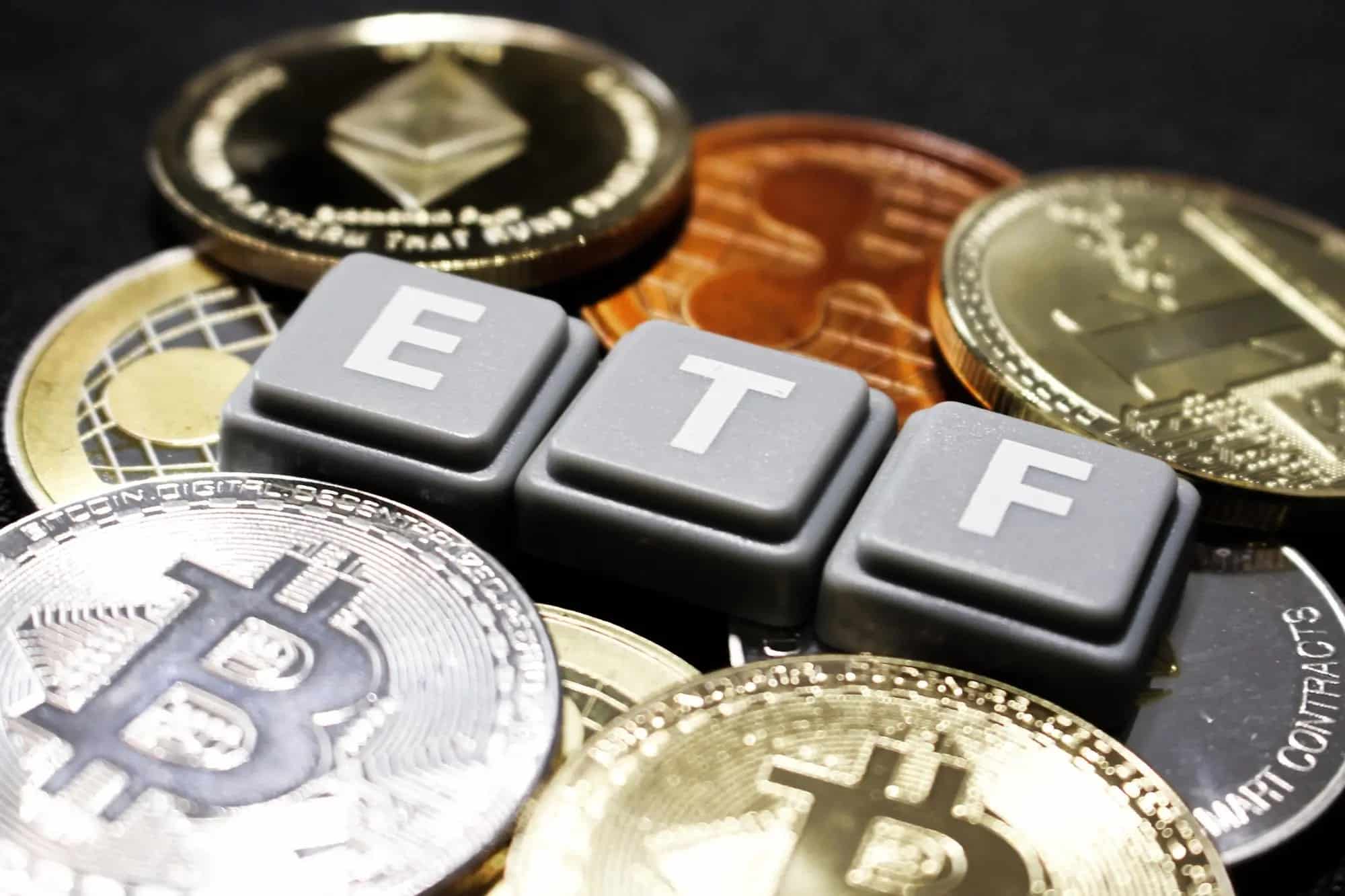The release date of“[Bitcoin ETF: A Comprehensive Guide To Understanding And Investing]” and the ultimate guide of ETF.
Editor's Notes: “[Bitcoin ETF: A Comprehensive Guide To Understanding And Investing]” have published on [date] to help better understand how Bitcoin ETF benefits your investment as well as introduce you more about ETF.
We analyzed and collected some information or dig into this topic to help our audience learn more about this topic, we put together this “[Bitcoin ETF: A Comprehensive Guide To Understanding And Investing]” guide to help you make the right decision.
FAQ
This FAQ section provides answers to frequently asked questions about Bitcoin ETFs, helping investors make informed decisions when navigating the complex financial landscape.
Question 1: What are the key advantages of investing in a Bitcoin ETF?
Answer: Bitcoin ETFs offer several advantages, including diversification of portfolio, accessibility to institutional investors, regulated trading environment, and simplified investment process.
Question 2: How do Bitcoin ETFs differ from directly investing in Bitcoin?
Answer: Bitcoin ETFs are traded on traditional stock exchanges, eliminating the need for investors to hold or manage private keys. ETFs also provide a regulated investment vehicle, while direct Bitcoin investments require technical expertise and security measures.
Question 3: What are the potential risks associated with Bitcoin ETFs?
Answer: Bitcoin ETFs carry risks associated with the underlying asset, such as price volatility, regulatory changes, and market manipulation. Investors should carefully consider their risk tolerance and investment goals.
Question 4: How are Bitcoin ETFs priced?
Answer: Bitcoin ETFs are priced based on the real-time market value of Bitcoin. The ETF issuer buys and redeems shares in exchange for physical Bitcoin, ensuring the fund's net asset value (NAV) closely tracks the underlying asset's price.
Question 5: What are the tax implications of investing in Bitcoin ETFs?
Answer: Bitcoin ETFs, like other investments, are subject to capital gains taxes. The tax liability depends on the investor's holding period and individual tax bracket. Consult a tax professional for specific tax advice.
Question 6: How do I choose the right Bitcoin ETF for my investment portfolio?
Answer: Consider factors such as expense ratio, tracking error, liquidity, and investment objectives. Research different ETFs, consult financial advisors, and align your selection with your investment strategy.
Understanding Bitcoin ETFs and their associated risks and benefits is crucial for informed investment decisions. By addressing common concerns, this FAQ section empowers investors to navigate the evolving financial landscape and make prudent choices.
For a comprehensive guide to Bitcoin ETFs, including key considerations, market trends, and expert insights, refer to our detailed article: [Bitcoin ETF: A Comprehensive Guide To Understanding And Investing]
Tips
Following these tips will help you navigate the world of Bitcoin exchange-traded funds (ETFs) with confidence.
Tip 1: Understand the Underlying Asset
Before investing in a Bitcoin ETF, it is essential to understand the underlying asset, Bitcoin. Research its history, price movements, and market trends to make informed decisions.
Tip 2: Know the Different Types of Bitcoin ETFs
There are various types of Bitcoin ETFs available, each with its unique characteristics. Consider their investment strategies, methodologies, and risk profiles to select the most suitable ones for your portfolio.
Tip 3: Evaluate Fees and Expenses
Bitcoin ETFs typically charge management fees and other expenses. Compare these costs among different ETFs to minimize the impact on your returns over time.
Tip 4: Diversify Your Cryptocurrency Holdings
Investing in Bitcoin ETFs offers exposure to the cryptocurrency market. However, it is crucial to diversify your portfolio by investing in a range of cryptocurrencies and other assets to reduce risk.
Tip 5: Monitor Market Trends and News
Stay informed about market trends and news related to Bitcoin and the ETF industry. This will enable you to make timely adjustments to your investment strategy and respond to market fluctuations effectively.
Tip 6: Use a Reputable Brokerage or Trading Platform
When investing in Bitcoin ETFs, choose a reputable brokerage or trading platform that offers secure and reliable services. Verify their regulatory compliance and reputation before entrusting them with your funds.
Tip 7: Store Your Crypto Safely
While Bitcoin ETFs provide a regulated way to gain exposure to Bitcoin, it is still essential to secure your crypto assets. Consider using a hardware wallet or keeping your coins on a reputable exchange with strong security measures.
Tip 8: Consider Long-Term Investment Horizon
Bitcoin and the broader cryptocurrency market have experienced significant volatility. Invest with a long-term perspective and avoid panic selling during market downturns. Historically, the market has recovered from setbacks and provided investors with substantial returns.
By following these tips, investors can approach Bitcoin ETFs with confidence and maximize their investment potential.
Bitcoin ETF: A Comprehensive Guide To Understanding And Investing

Understanding Bitcoin: Your Comprehensive Guide - Source www.cryptohopper.com
The emergence of Bitcoin Exchange Traded Funds (ETFs) has garnered significant attention in the financial markets. To fully grasp the nuances of Bitcoin ETFs, a thorough understanding of their key aspects is essential.
- Structure: Understanding the underlying structure and legal framework of Bitcoin ETFs.
- Asset Exposure: Assessing the type and level of exposure to Bitcoin provided by different ETF offerings.
- Regulatory Landscape: Exploring the regulatory environment surrounding Bitcoin ETFs and its implications for investors.
- Investment Considerations: Evaluating factors such as liquidity, fees, and risk associated with investing in Bitcoin ETFs.
- Market Impact: Analyzing the potential impact of Bitcoin ETFs on the broader market and investor sentiment.
- Future Trends: Discussing the advancements and emerging developments in the Bitcoin ETF market.
Comprehensively examining these aspects provides investors with a strong foundation for making informed decisions about Bitcoin ETF investments. It enables them to navigate the complexities of this evolving market, assess the risks and opportunities, and leverage these ETFs as part of a diversified investment strategy. By staying abreast of the latest developments and understanding the key aspects outlined above, investors can capitalize on the potential benefits offered by Bitcoin ETFs while mitigating associated risks.

A Comprehensive Cryptocurrency ETF List: Unleashing the Accessibility - Source corponline-statements.firstrepublic.com
[Bitcoin ETF: A Comprehensive Guide To Understanding And Investing]
A Bitcoin ETF (Exchange-Traded Fund) provides investors with the opportunity to gain exposure to the price of Bitcoin and other cryptocurrencies without having to buy or store the actual digital assets. Bitcoin ETFs offer several advantages over buying Bitcoin directly, including greater accessibility and diversification, as well as the ability to trade on traditional stock exchanges.

Fidelity's FBTC Spot Bitcoin ETF: A Comprehensive Guide-web3.0-php.cn - Source www.php.cn
The launch of Bitcoin ETFs has had a significant impact on the cryptocurrency market, providing increased liquidity and attracting new investors to this asset class. However, it is important to note that Bitcoin ETFs are still subject to market fluctuations and regulatory risks, and investors should carefully research and understand the specific risks associated with each ETF before investing.
With the growing adoption of Bitcoin and other cryptocurrencies, Bitcoin ETFs are expected to play an increasingly important role in providing investors with access to this new asset class. As the regulatory landscape develops, and more institutional investors enter the cryptocurrency market, Bitcoin ETFs are poised to become a key component of the broader financial ecosystem.
| Advantages | Disadvantages |
|---|---|
| Accessible to traditional investors | Subject to market fluctuations |
| Diversification benefits | Regulatory risks |
| Easy to trade | Higher fees than direct cryptocurrency purchase |
